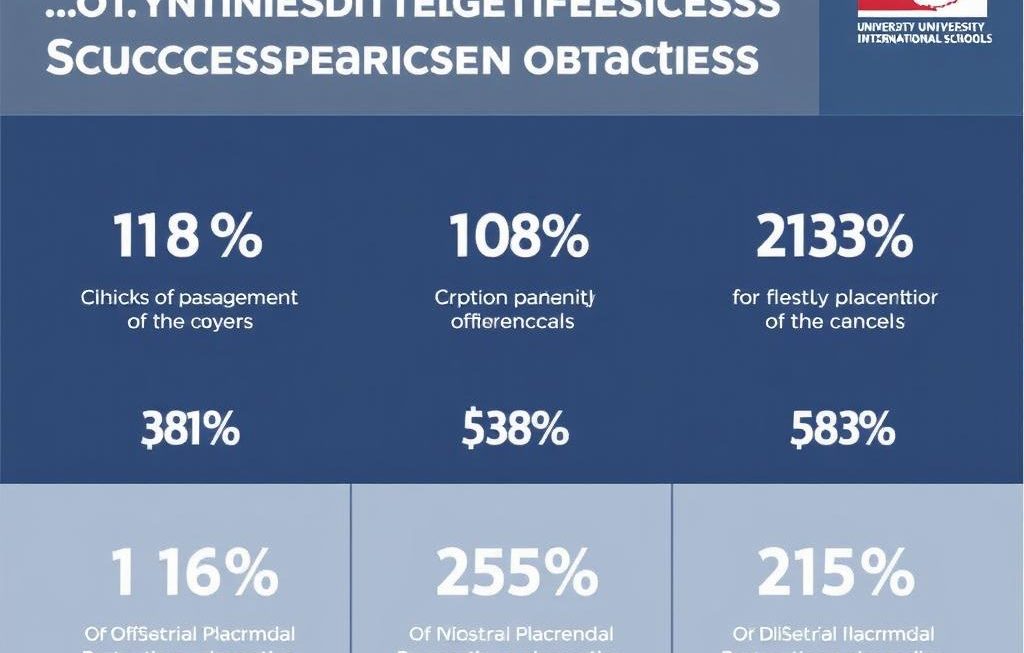Choosing the right international school in Cyprus is a significant decision for many families, especially expatriates relocating to the island. One of the primary considerations in this choice revolves around tuition fees, which vary considerably depending on the school, curriculum, location, and additional services offered. Navigating the intricacies of international school tuition Cyprus cost can be daunting, given the variety of institutions ranging from day schools to boarding schools and private academies. This article provides a comprehensive overview of what families should expect when considering school fees Cyprus international schools, along with insights into the financial planning aspects for expat school tuition 2025 and the specifics related to boarding school fees Cyprus.
Understanding the Landscape of International Schools in Cyprus
Cyprus has developed a thriving international education sector over the last two decades, serving both local families seeking alternative curricula and expatriates searching for globally recognized academic programs. The island’s international schools mainly offer British, American, or European curricula and cater to a wide age range, from early years through to pre-university levels. Understanding the tuition framework requires a breakdown of school types, their accreditation, and associated costs.
Day schools dominate the market, with private school tuition Limassol often higher than in other cities, reflecting demand from the diplomatic community and multinational corporations based there. Boarding schools, while less common, attract students from abroad seeking extended, immersive educational experiences.
International school tuition Cyprus cost reflects not only curriculum but also school reputation, extracurricular offerings, and location.
Many international schools adopt a tiered tuition model where fees increase with each advancing grade. This approach accounts for the complexities and resources needed for higher-level courses such as IGCSEs, A-levels, or the International Baccalaureate (IB).
Breaking Down International School Tuition Cyprus Cost by Curriculum
One essential factor in evaluating school fees Cyprus international schools is the curriculum type. British curriculum schools, offering GCSEs and A-levels, tend to set tuition fees slightly differently compared to American High School Diploma programs or IB Diploma schools.
British curriculum schools in Cyprus typically have a fee structure that starts moderately lower in early years and primary schooling and then sees a notable increase at secondary school levels due to examination preparation costs. For example, a student in primary education might pay on the lower end of the tuition scale, but in the sixth form years, fees can rise by 30–50% depending on the offerings of advanced courses.
American curriculum-oriented schools tend to have relatively stable fees irrespective of year group, with some premiums for Advanced Placement (AP) and specialized courses. IB schools, recognized globally for their rigorous assessment, usually command higher tuition due to the intensive faculty requirements and resources needed for their comprehensive curriculum.
| Curriculum Type | Approximate Annual Tuition Range (€) | Key Cost Drivers |
|---|---|---|
| British (IGCSE, A-levels) | 6,000 – 15,000 | Exam fees, teacher qualification, extracurricular programs |
| American (High School Diploma, AP) | 7,000 – 13,000 | Curriculum material, AP exam fees, college counseling |
| International Baccalaureate (IB) | 8,000 – 18,000 | Highly trained staff, subject range, international recognition |
Curriculum choice significantly influences the overall tuition cost but also impacts academic and university placement outcomes.
Key Components Influencing School Fees Cyprus International Schools
Besides the base tuition, several factors contribute to the total cost families will encounter. Registration fees, annual capital fees, examination costs, extracurricular activities, transportation, and school meal plans can accumulate to add thousands of euros annually. Understanding these components provides a clearer picture of the actual cost for families budgeting for expat school tuition 2025.
Registration fees are usually one-time or annual deposits required at enrollment or re-enrollment. Capital fees support infrastructure development and maintenance and are often billed annually in addition to tuition. Examination fees, particularly for external exams such as Cambridge IGCSEs, IB final assessments, or AP tests, are charged separately and can range from several hundred to over a thousand euros per student per year.
Extracurricular activities such as sports, music, drama, and field trips may be included or come at additional cost, so verifying what is bundled with tuition is important. Transportation expenses depend on school-provided bus services and can vary widely based on distance and frequency of routes. Similarly, school canteen meal plans vary in price and quality.
Example of Additional Costs at International Schools in Cyprus
- Registration fee: €500 – €1,500 (one-time/annual)
- Capital levy: €300 – €1,000 per annum
- Exam fees: €300 – €1,200 (depending on level and number of exams)
- Transportation: €800 – €2,000 annually
- Meals: €1,000 – €2,000 annually
Budgeting for tuition alone is insufficient—additional fees can add 15-30% to a family’s annual school expenditure.
Costs of Private School Tuition Limassol: Market Trends and Expectations
Limassol represents one of the most competitive and high-cost markets for private school tuition in Cyprus. This dynamic arises from its status as a commercial hub, attracting large expatriate populations and wealthy local families. Consequently, private school tuition Limassol not only reflects the quality and breadth of education but also the premium services and facilities provided.
On average, tuition fees in Limassol’s international and private schools tend to be on the upper end compared to other cities like Nicosia or Paphos. Several schools there offer state-of-the-art facilities including science and technology labs, language centers, and extensive arts and sports complexes—all of which contribute to elevated fees.
Private school tuition Limassol consistently outpaces other regions due to real estate costs and demand. Many parents accept this premium in exchange for the access to renowned curricula, diverse multicultural student bodies, and well-established university counseling programs.
Boarding School Fees Cyprus: What Families Need to Know
While boarding schools are less prevalent in Cyprus compared to day schools, they offer special appeal for families seeking fully immersive educational environments, especially for students from abroad or those needing more structured supervision. Boarding school fees Cyprus cover tuition plus boarding costs, the latter including accommodation, meals, and pastoral care.
The combination of tuition fees and boarding expenses inevitably makes these among the most costly educational options on the island. Tuition figures align with day school fees for comparable curriculums but add significant additional costs related to housing and care provisions. The package is thus comprehensive, integrating education, living expenses, and extracurricular activities into a single fee.
| Boarding School Fee Component | Approximate Annual Cost (€) |
|---|---|
| Tuition | 7,000 – 15,000 |
| Boarding (Accommodation + Meals) | 10,000 – 20,000 |
| Additional Services (Pastoral Care, Activities) | 1,000 – 3,000 |
Boarding school fees Cyprus are a full-package commitment, typically doubling the cost of day school tuition.
Planning Ahead for Expat School Tuition 2025
Expat families moving to Cyprus or already residing on the island face the challenge of forecasting educational expenses amid evolving fee schedules and currency fluctuations. Preparing for expat school tuition 2025 involves understanding current fee trends, factoring in inflation adjustments, and anticipating possible fee increases that schools commonly announce a year or two in advance.
Most international schools in Cyprus adjust tuition annually by approximately 3-5%, reflecting inflation and rising operational costs. Families should also consider currency exchange efficacy if paying in non-euro currencies or if tied to multinational company expatriate contracts. Negotiating tuition payment schedules or sibling discounts might also ease some financial pressure if the school offers such options.
Given that many international schools have waiting lists and limited seats, early application — sometimes up to a year in advance — is critical. This timeline also allows families to budget accurately and meet all financial requirements well before the academic year begins.
Proactive financial planning and timely applications are essential for aligning expat school tuition 2025 with family budgets and logistical needs.
How Tuition Fees Reflect Educational Quality and Value in Cyprus
While tuition fees can be viewed as a barrier, it is important to understand their relationship with the quality of education. Fees fund qualified teaching staff, modern facilities, smaller class sizes, and a rich variety of extracurricular activities. These factors contribute directly to student outcomes, well-being, and university placement success.
High tuition often correlates with schools that maintain extensive accreditations, invest in professional development, and provide personalized student support services. For expat families, these attributes ensure smoother integration and academic continuity for children coming from various educational backgrounds.
It is equally essential for parents to match fees with the school’s ethos and approach, ensuring that the investment serves their child’s individual needs, whether in arts, sciences, languages, or competitive sports.
Indicators of Value Beyond Tuition
- Student-to-teacher ratios lower than 15:1
- Availability of multiple language programs
- Strong university counseling and alumni networks
- Robust pastoral care and student wellbeing infrastructure
Tuition fees must be gauged alongside the holistic offering to assess true education value in Cyprus international schools.
Future Trends Impacting International School Tuition Cyprus Cost
The international school sector in Cyprus continues to evolve, influenced by global educational shifts, technological integration, and demographic changes. A notable trend is the expansion of technology-enabled learning, which may modify fee structures by blending online and in-person instruction.
Another trend is growing demand for bilingual education and personalized learning pathways, driving schools to invest in specialized faculty and curriculum development. These enhancements may cause tuition to rise but cater better to individual learner profiles.
Additionally, rising energy costs and property maintenance expenses could influence capital levy fees, altering the total annual outlay for families. Schools are also increasingly incorporating sustainability initiatives, which can have initial cost implications but promise long-term benefits.
Keeping abreast of emerging trends helps families anticipate changes in international school tuition Cyprus cost and choose wisely.
Financial Aid and Scholarship Options at International Schools in Cyprus
Despite the relatively high tuition fees, several international schools in Cyprus offer financial aid and scholarships to assist deserving and talented students. These programs may target academic excellence, artistic talents, or leadership potential, providing full or partial tuition discounts. Some schools also have needs-based aid initiatives to support families facing financial difficulties.
Applications for scholarships are usually competitive, requiring documented evidence of achievement, reference letters, and sometimes interviews or assessments. Exploring these options can substantially affect the affordability of private school tuition Limassol and elsewhere on the island.
Families interested in financial aid should inquire early, as deadlines often precede admission timelines by several months. Importantly, financial support rarely covers auxiliary costs such as transportation or meals, focusing predominantly on tuition reduction.
Scholarships and financial aid make world-class education accessible to a broader range of students in Cyprus international schools.
Making the Right Choice: What to Prioritize When Considering Tuition
Ultimately, selecting an international school in Cyprus involves balancing multiple factors beyond just tuition fees. Families must weigh the curriculum fit, school culture, location convenience, extracurricular opportunities, and the overall value proposition. Transparency in fee structure, clarity on what is included in tuition, and flexibility in payment options also significantly influence decision-making.
Parents should conduct school visits, meet staff, and seek testimonials from other expatriate families to understand the complete picture. Consulting relocation experts or educational advisors familiar with Cyprus schools can further clarify expectations regarding expat school tuition 2025.
Furthermore, planning for hidden costs and reserving contingencies ensures that the school experience remains positive and free of unexpected financial strain. Doing so secures a pathway for children’s academic success and well-being during their stay in Cyprus.
A strategic and informed approach to tuition costs empowers families to secure the best education opportunities in Cyprus.
Securing Quality Education Without Surprises: Your Financial Roadmap for Cyprus International Schools
The international education landscape in Cyprus offers diverse opportunities and costs that require careful evaluation. By understanding the nuances of international school tuition Cyprus cost, from curriculum and location to boarding fees and additional expenses, families can plan with confidence. For expatriates, awareness of market trends, financial aid possibilities, and future tuition increments is critical to managing budgets effectively.
Private school tuition Limassol and other regions of Cyprus reflect distinct market dynamics but consistently emphasize quality and breadth of educational experience. Boarding school fees Cyprus represent a specialized segment demanding comprehensive financial preparation. Through detailed examination and early planning, families can align expectations with realities and ensure their children receive the education they deserve in one of the Mediterranean’s most welcoming environments.
The key to navigating school fees Cyprus international schools lies in transparency, research, and proactive communication. This empowers parents and caregivers to make informed decisions, maintain financial stability, and foster educational success for their children in the years to come.
Frequently Asked Questions (FAQs)
-
What is the average international school tuition Cyprus cost for primary education?
The average tuition for primary education ranges between €6,000 and €10,000 annually, depending on the curriculum and school facilities. -
Are boarding school fees Cyprus significantly higher than day school fees?
Yes, boarding school fees typically double the tuition due to added costs for accommodation, meals, and pastoral care, ranging from €18,000 to €38,000 annually. -
How much should expat families budget for school fees Cyprus international schools including extras?
In addition to tuition, families should budget an extra 15-30% for registration, exams, transport, and meals, potentially raising total costs to approximately €10,000-€20,000 per year. -
Is private school tuition Limassol more expensive than in other Cypriot cities?
Generally, yes. Limassol’s private schools tend to have higher fees due to demand, quality, and premium facilities compared to cities like Nicosia or Paphos. -
What financial aid options exist for international schools in Cyprus?
Many international schools provide merit-based scholarships and needs-based financial aid, primarily covering partial or full tuition discounts but usually not extras like transport or meals. -
Do international schools in Cyprus increase tuition annually?
Schools commonly increase tuition by 3-5% each year to keep pace with inflation and rising operational costs. -
Can curriculum choice affect tuition fees significantly?
Yes, for example, IB programs often have higher fees than British or American curricula due to specialized faculty and resource requirements.



